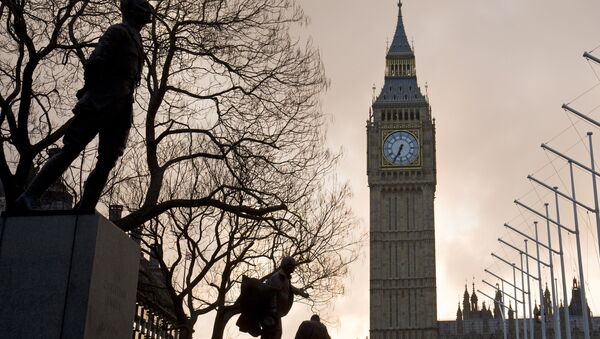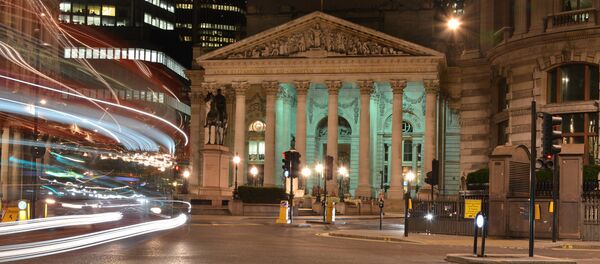The UK's GDP added 0.6% quarter-on-quarter in the last three months of 2015 compared to previous estimate of 0.5% for the same period, the London-based Office for National Statistics reported on Thursday. The British economy accelerated due to stronger advances in construction, industrial production, and in services sector, surpassing the 0.4% gain in Q3.
Subsequently, for 2015, the UK's economy grew by 2.3%, rather than 2.2% as estimated previously; this may be encouraging news, but the current year's outlook is concerning.
News Release — Financial Policy Committee statement from its policy meeting, 23 March 2016 https://t.co/WcPXJNi2S9
— Bank of England (@bankofengland) 29 March 2016
A major alarming signal is the deterioration in the nation's international trade performance. The UK's current account deficit gap widened, reaching 32.7 bln sterling in Q4, or 7% GDP. During the year, the deficit gap expanded to 96.2 bln pounds, or 5.2% GDP, its highest level on record since 1948. That said, the UK has imported drastically more than it exported during the period, meaning there are significant risks to the nation's international competitiveness. Sterling's strength compared to the devalued euro and crash-affected emerging market currencies is to blame, and fading international trade competitiveness is a major downward factor for the nation's growth outlook.
"Today's figures expose the real danger of economic uncertainty and show that now is precisely not the time to put our economic security at risk by leaving the EU," Chancellor of the Exchequer George Osborne said, commenting on the data.
The slowdown in the global economy is darkening the outlook for the UK; while cheap oil is one of the main factors affecting global cooling, oil-producing Britain is feeling the squeeze in its energy sector as well. The financial sector is another major pillar of the national economy, based largely on investors' trust in the UK as a safe haven and on its high quality financial services. The Brexit scenario could badly shake this trust, resulting in poorer performance within the financial industry, dealing another significant blow to economic growth.
The BOE's Financial Stability Committee (FSC) commented that the Brexit prospect does indeed bear risks to financial stability and should be avoided in order to sustain the current pace of economic expansion. Meanwhile, given the disappointing current account figures, the broader economy could hardy draw any support from sectors other than energy and finance in the near- to medium-term. The deficit has been derided as "horrible" and "uncomfortable."
"It could become an increasing problem if the markets lose confidence in the UK economy for any reason — especially given the size of the 4Q 2015 shortfall. This would make it harder for the UK to attract the investment inflows that it needs to finance the current account deficit and could weigh down heavily on sterling. An obvious potential trigger for the markets losing confidence in the UK economy could be a vote to leave the EU in the 23 June referendum," Howard Archer of London-based IHS Global Insight said.
Should Britain leave the EU, the current account deficit is likely to expand further. Brexit would mean a decline in trade with mainland Europe, which is currently capitalizing on the cheaper euro. The reintroduction of customs tariffs along with weakening sterling would dramatically decrease the scope of UK trade with the euro area. A slide in the pound's FX rate could improve the UK's international competitiveness, possibly narrowing the deficit gap.
The UK's yearly growth is expected to slow to 2% in 2016.





